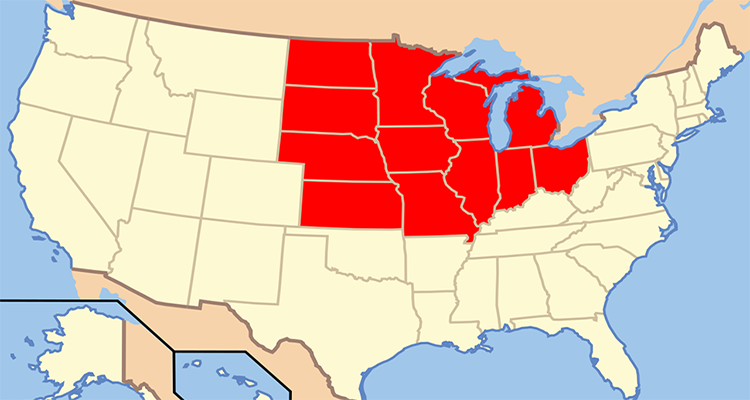SEIA plans expansion into Midwest
SEIA is seeking expansion into the Midwest. A special committee is meant to help with this. The aim is to redirect the association’s attention to state-level policy battles, as experts believe this is where the future of solar will be determined.
Recent developments lead experts to believe that important solar policy decisions will soon be made on a state level rather than a federal one. The Solar Energy Industry Association (SEIA), the US trade association for solar energy and related businesses, agrees and is reacting accordingly. In order to increase and expand the state-level solar advocacy network, a new committee is currently being founded.
Committee to focus on seven states
The committee’s aim is to pave the way for the SEIA’s expansion into the Midwest, focusing particularly on seven states: Illinois, Indiana, Iowa, Michigan, Minnesota, Ohio and Wisconsin. According to SEIA, these states were chosen based upon the remarkable amount of solar capacity they have installed over the past two years. Furthermore, they continue to be promising and may even install a further 1 GW by 2021
Midwest extremely promising market
SEIA has high hopes for the Midwest, as Abigail Ross Hopper, the president and CEO, recently explained. “Over the next few years, the Midwest has the potential to become a hotbed of solar growth, with all the benefits that brings. This committee will provide a platform for solar companies to come together and help drive the industry’s messaging and stance on key policies that can transform Midwest power markets into a national leader in innovation and modernization.”
Recent events prove that next solar decisions will be made on state level
Until recently, SEIA has concentrated mainly on the fight for the federal investment tax credit (ITC), which is, at least for now, stable. Thus, SEIA can invest their energy into the expansion into the Midwest, which is fuelled by a series of events taking place over the course of the last three months.
Firstly, Indiana decided on a bill that would mean the end of net-metering, while Arizona has decided to abolish their net-metering infrastructure. Maryland and California are insisting on their clean-energy-friendly measures, despite local resistance. Meanwhile, Hawaii intends to integrate solar to its grid and New Hampshire’s Public Utilities Commission’s staff have presented a series of suggestions for improvement to the state’s net-metering policies.
Now it remains to be seen if the new committee and the following expansion will help to steer the development of the US solar market into the right direction.
Title Image: By This version: uploader Base versions this one is derived from: originally created by en:User:Wapcaplet (GFDL), CC-BY-SA-3.0 or CC BY 2.0, via Wikimedia Commons





